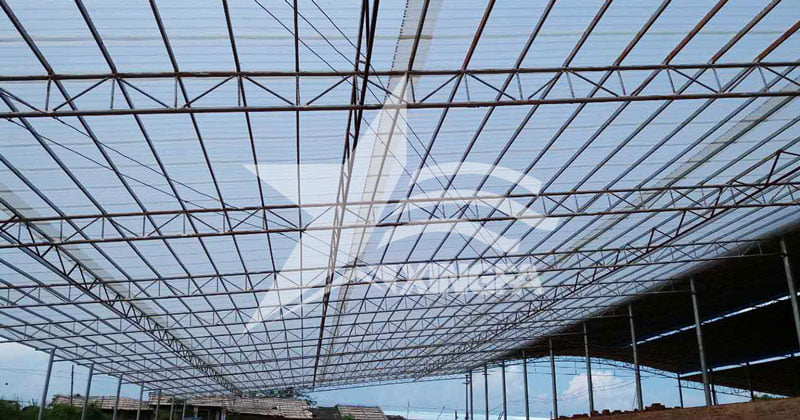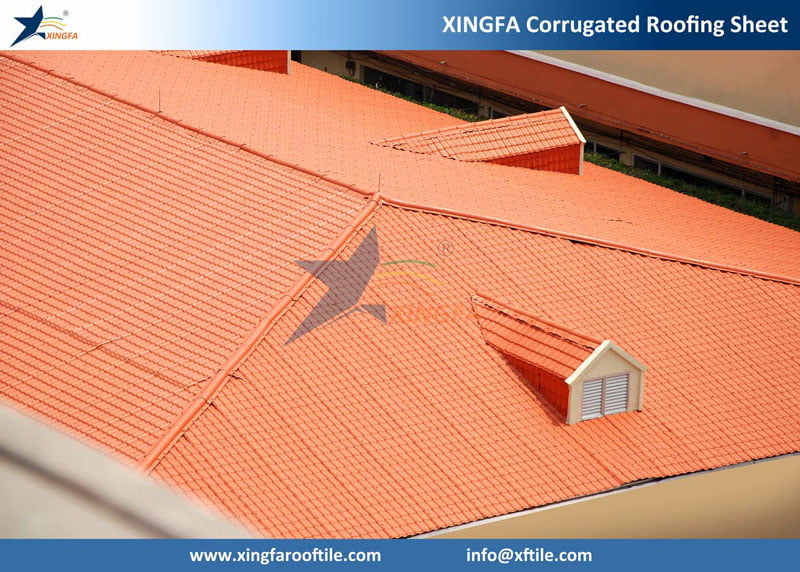When it comes to installing a plastic tile roof, one important factor to consider is the slope of the installation. The installation slope of the roof can greatly affect its waterproofing effectiveness.

PVC roofing sheets are commonly used for plastic tile roofing, as they are durable and resistant to corrosion. However, if the slope of the installation is not sufficient, it can lead to water pooling on the roof, which can eventually cause leaks and damage.

Ideally, the installation slope of a plastic tile roof should be at least 5 degrees to ensure proper water drainage. In areas with heavy rainfall or snow, a steeper slope may be necessary.
In addition, using anti-corrosion roof sheets can also enhance the waterproofing of the plastic tile roof. These sheets are designed to resist corrosion and provide an extra layer of protection against water damage.
Furthermore, using PVC flexible plastic sheets for the installation can also help improve the waterproofing of the roof. These flexible sheets can be moulded to fit the specific slope of the roof, ensuring a tight seal and preventing water from seeping through.

In conclusion, the installation slope of a plastic tile roof does indeed affect its waterproofing effectiveness. Proper slope, along with the use of anti-corrosion roof sheets and flexible plastic sheets, is essential for ensuring a long-lasting and watertight roof.


